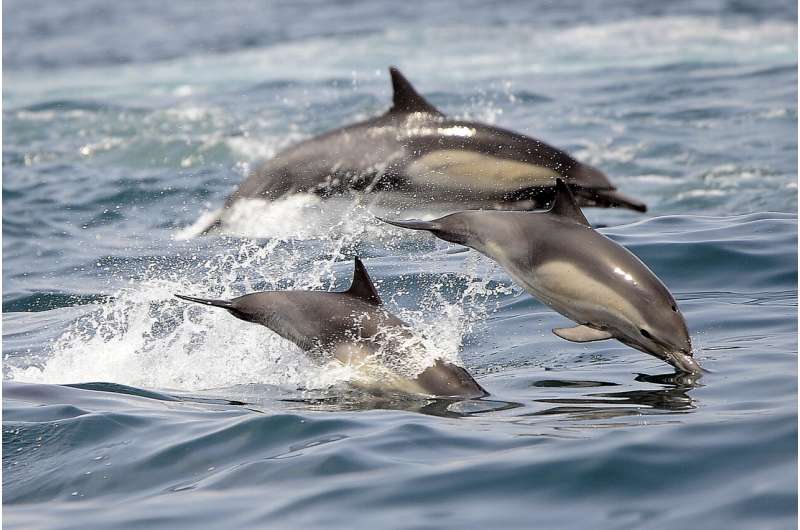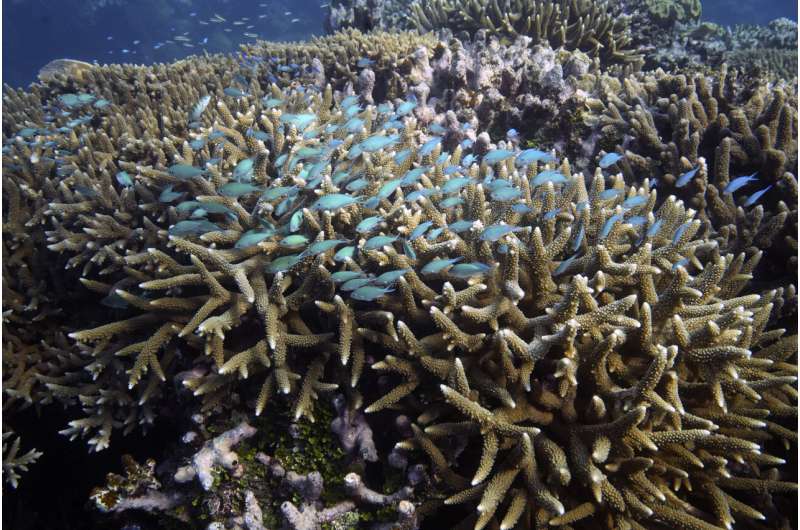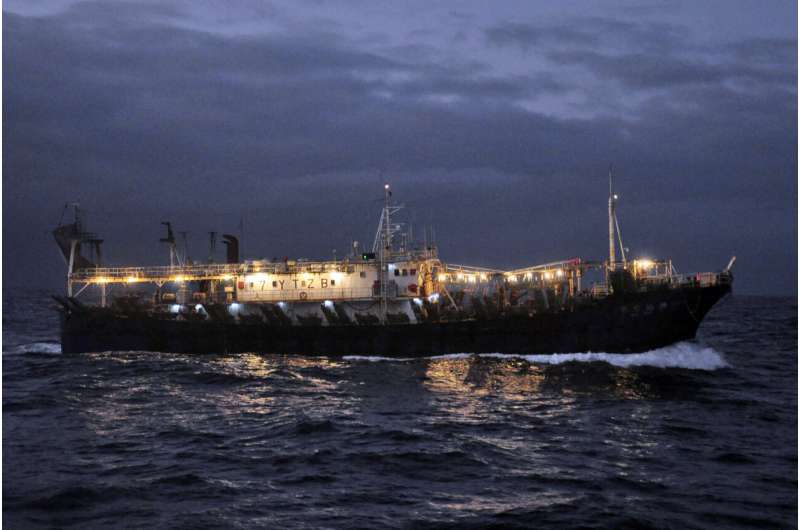UN ocean treaty talks resume with goal to save biodiversity

United Nations members gather Monday in New York to resume efforts to forge a long-awaited and elusive treaty to safeguard the world’s marine biodiversity.
Nearly two-thirds of the ocean lies outside national boundaries on the high seas where fragmented and unevenly enforced rules seek to minimize human impacts.
The goal of the U.N. meetings, running through March 3, is to produce a unified agreement for the conservation and sustainable use of those vast marine ecosystems. The talks, formally called the Intergovernmental Conference on Marine Biodiversity of Areas Beyond National Jurisdiction, resume negotiations suspended last fall without agreement on a final treaty.
“The ocean is the life support system of our planet,” said Boris Worm, a marine biologist at Canada’s Dalhousie University. “For the longest time, we did not feel we had a large impact on the high seas. But that notion has changed with expansion of deep sea fishing, mining, plastic pollution, climate change,” and other human disturbances, he said.
The U.N. talks will focus on key questions, including: How should the boundaries of marine protected areas be drawn, and by whom? How should institutions assess the environmental impacts of commercial activities, such as shipping and mining? And who has the power to enforce rules?

“This is our largest global commons,” said Nichola Clark, an oceans expert who follows the negotiations for the nonpartisan Pew Research Center in Washington, D.C. “We are optimistic that this upcoming round of negotiations will be the one to get a treaty over the finish line.”
The aim of the talks is not to actually designate marine protected areas, but to establish a mechanism for doing so. “The goal is to set up a new body that would accept submissions for specific marine protected areas,” Clark said.
Marine biologist Simon Ingram at the University of Plymouth in England says there’s an urgent need for an accord. “It’s a really pressing time for this—especially when you have things like deep-sea mining that could be a real threat to biodiversity before we’ve even been able to survey and understand what lives on the ocean floor,” Ingram said.
Experts say that a global oceans treaty is needed to actually enforce the U.N. Biodiversity Conference’s recent pledge to protect 30% of the planet’s oceans, as well as its land, for conservation.
“We need a legally binding framework that can enable countries to work together to actually achieve these goals they’ve agreed to,” said Jessica Battle, an expert on oceans governance at World Wide Fund for Nature

U.S. Assistant Secretary of State for Oceans and International Environmental and Scientific Affairs Monica Medina said the treaty was a priority for the country. “This agreement seeks to create, for the first time, a coordinated approach to establishing marine protected areas on the high seas,” she said. “It’s time to finish the job.”
Officials, environmentalists and representatives of global industries that depend on the sea are also watching negotiations closely.
Gemma Nelson, a lawyer from Samoa who is currently an Ocean Voices fellow at the University of Edinburgh, said that small Pacific and Caribbean island countries were “especially vulnerable to global ocean issues,” such as pollution and climate change, which generally they did not cause nor have the resources to easily address.
“Getting the traditional knowledge of local people and communities recognized as valid” is also essential to protect both ecosystems and the ways of life of Indigenous groups, she said.
With nearly half the planet’s surface covered by high seas, the talks are of great importance, said Gladys Martínez de Lemos, executive director of the nonprofit Interamerican Association for Environmental Defense focusing on environmental issues across Latin America.
“The treaty should be strong and ambitious, having the authority to establish high and fully protected areas in the high seas,” she said. “Half of the world is at stake these weeks at the United Nations.”
© 2023 The Associated Press. All rights reserved. This material may not be published, broadcast, rewritten or redistributed without permission.
Citation:
UN ocean treaty talks resume with goal to save biodiversity (2023, February 20)
retrieved 20 February 2023
from https://phys.org/news/2023-02-ocean-treaty-resume-goal-biodiversity.html
This document is subject to copyright. Apart from any fair dealing for the purpose of private study or research, no
part may be reproduced without the written permission. The content is provided for information purposes only.
For all the latest Science News Click Here
For the latest news and updates, follow us on Google News.

